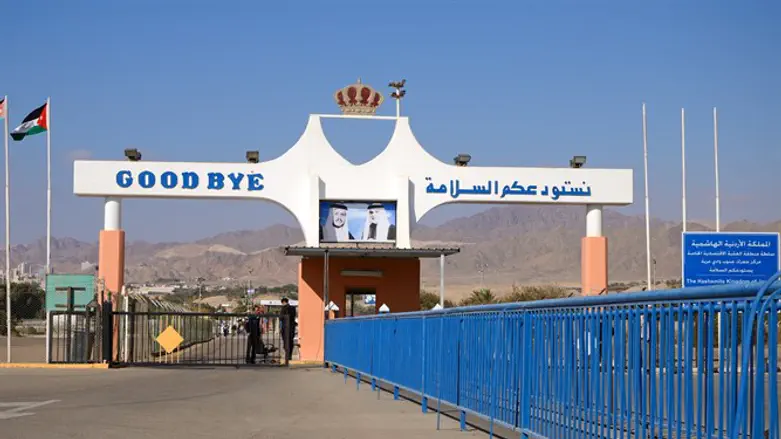
Jordan on Sunday reaffirmed its commitment to the peace treaty with Israel, in the wake of the incident in which a Jordanian minister was pictured stepping on an image of the Israeli flag while entering a meeting.
The kingdom’s minister of state for information, Jumana Ghneimat, was pictured last week stepping on the flag design when entering a meeting at a trade union complex.
The image of the flag has been affixed to the floor just inside the entrance to the complex for several years to protest Israel's alleged “occupation” of “Palestinian territories” and Jordan's ties with the Jewish state, union officials say.
Israel’s Foreign Ministry issued a statement on Sunday deploring the flag “desecration”, and said it had summoned acting Jordanian ambassador Mohammed Hamid for a reprimand.
Jordan’s Foreign Ministry spokesman Majed al-Qatarneh confirmed that the Israeli embassy in Amman had asked for clarifications over the incident.
Qatarneh said, according to Reuters, that Jordan respects its peace treaty with Israel and that Ghunaimat had entered a private building by its main entrance to attend an official meeting.
Jordan is one of two Arab countries, along with Egypt, to have signed a peace treaty with Israel. The incident involving the flag comes amid heightened tensions between the two countries, after King Abdullah II announced that he had decided not to extend the leases to Israel of lands in Naharayim and Tzofar.
Under the 1994 peace treaty between the countries, those areas were recognized to be under Jordanian sovereignty but the treaty gave Israel special provisions to use the land and allow Israelis free access.
The treaty stipulated that the deal would be automatically renewed unless either of the parties notified the other a year before expiry that it wished to terminate the agreement.
Prime Minister Binyamin Netanyahu later said that while he acknowledges Jordan’s right not to extend the lease, his government will open negotiations with the kingdom to secure an extension of the lease, which is slated to end in October 2019.
Despite the fact that Jordan has a peace treaty with Israel, the country’s parliament, which is made up mostly of Islamists, remains anti-Israel and its members have more than once called to annul the peace treaty.
Last year, the Jordanian parliament approved a proposal to establish a committee to reevaluate all formal ties with Israel, including the peace agreement. That proposal does not necessarily mean that the peace accords with Israel will be annulled, as such a decision requires the approval of the government, the royal palace and the council advising the king.
Last summer, Jordanian lawmakers voiced support for three terrorists who murdered two Israeli Border Police officers near the Temple Mount, praising them as “martyrs”.
